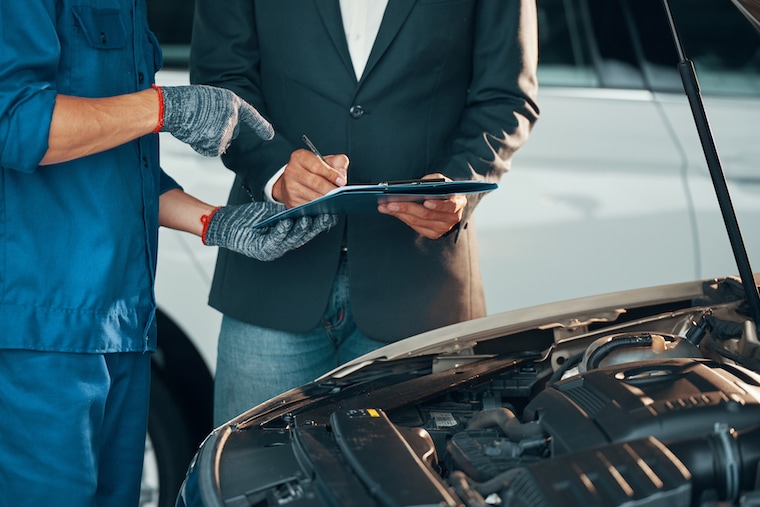How do i set up and register a auto repair shop?
Join the ranks of successful automotive entrepreneurs and start your own auto repair shop! Whether you’re a skilled mechanic or a passionate car enthusiast, our comprehensive guide will provide you with the essential steps to get your business up and running. Don’t miss out on this exciting opportunity to dive into the booming automotive industry.

Conduct Market Research
To succeed in the world of auto repair, don’t rush in blindly. Start by doing your homework. Market research is key. By studying your local competition and identifying your target customers, you’ll gain insights into what your market demands and how to shape your business strategy. Take a hard look at factors such as location, demographics, customer preferences, and the types of services already offered in your area. Armed with this knowledge, you’ll have a competitive edge.
Create a Business Plan
Crafting a top-notch business plan is key to achieving success. It starts with outlining your objectives, target market, competition analysis, marketing strategies, pricing models, and financial projections. This document not only serves as a roadmap for your venture but also helps secure funding from potential investors or financial institutions. Start building your winning business plan today.
Choose a Suitable Location
Drive success to your auto repair shop by securing a prime location. Choose a easily accessible spot, near major roads or highways, with ample parking for customers. Don’t forget to factor in the proximity to residential areas, car dealerships, and related businesses for a steady flow of customers.
Obtain Necessary Permits and Licenses
Want to start an auto repair shop? Make sure you’re legal! Get permits and licenses that comply with the regulations in your area. Required permits may vary, but common ones include zoning, business, and environmental permits. You may also need specialized permits for hazardous waste disposal or refrigerant handling. Don’t risk fines or legal trouble – research your obligations and get the proper permissions to operate your auto repair business.
Set Up Your Shop
Ready for the exciting part? It’s time to set up your auto repair shop! Equip your space with all the necessary tools, diagnostic equipment, lifts, and machines for speedy, efficient repairs. Don’t skimp on quality equipment and make sure you have enough space for multiple vehicles at once. And don’t forget about your customers – create a welcoming waiting area with comfy seating, a helpful reception desk, and informative materials about your services.
Hire and Train Staff
Want to provide top-notch service to your customers? Hire a skilled team of mechanics and technicians who are up-to-date with the latest advancements in automotive technology. Ensure that they receive ongoing training to enhance their skills. And don’t forget to prioritize a customer-oriented approach to drive the success of your auto repair shop.
Develop a Marketing Strategy
Want more customers for your auto repair shop? Craft a comprehensive marketing plan that hits both online and offline channels. Build a sleek website that showcases your services, location, and customer testimonials. Optimize your website using SEO techniques for better visibility in search engine results. Take your business to the next level with a strategic marketing approach.
Offer Outstanding Customer Service
Secure the Future of Your Auto Repair Shop with a Loyal Customer Base. Provide Stellar Service with Transparency in Pricing, Clear Explanations of Repair Processes, and On-Time Delivery. Communicate Effectively with Your Customers, Deliver Outstanding Results and Maintain a Friendly Demeanor. Watch Your Shop’s Reputation Soar with Positive Word-of-Mouth Recommendations.
Establish Supplier Relationships
Secure high-quality parts and materials for your auto repair shop by establishing relationships with reliable suppliers. Partner with reputable suppliers who provide competitive pricing, consistent availability, and timely deliveries. By building trust and maintaining communication with your suppliers, you’ll be able to meet your customers’ needs promptly.
Focus on Ongoing Growth and Improvement
Rev up your automotive business with these key strategies: stay up-to-date on the latest technology, keep a pulse on industry trends and customer desires, invest in staff training for top-notch skills and knowledge, regularly evaluate performance, seek feedback from customers, and adapt your strategies for continuous growth and success.
FAQ
Choosing the right location for your auto repair shop is crucial for its success. Consider the following factors when selecting a location:
Accessibility: Look for a location that is easily accessible for your target customers. Ideally, it should be near major roads or highways to attract passing traffic.
Proximity to Customers: Consider the demographics and preferences of your target market. Look for a location that is convenient for your potential customers to reach.
Competitor Analysis: Research the presence of other auto repair shops in the area. If the market is already saturated, consider finding a location where there is less competition.
Space Requirements: Ensure that the location has enough space to accommodate your repair equipment, waiting area, and parking for customers’ vehicles.
Operating an auto repair shop requires obtaining the necessary permits and licenses. The specific requirements may vary depending on your location, but here are some common ones to consider:
Business License: Obtain a general business license from your local government or municipality.
Zoning Permits: Check the local zoning regulations to ensure that your chosen location is suitable for an auto repair shop.
Environmental Permits: Depending on the services you offer, you may need permits related to waste disposal or handling hazardous materials.
State and Local Licenses: Research if your state or local authorities require additional licenses specific to the auto repair industry.
It’s essential to consult with local authorities or a legal professional to ensure compliance with all applicable regulations.
Equipping your auto repair shop with the right tools and equipment is crucial for providing efficient and high-quality services. Here are some essential items you’ll need:
Lifts: Invest in high-quality vehicle lifts to facilitate repairs and inspections.
Diagnostic Equipment: Purchase diagnostic tools and scanners to identify and troubleshoot vehicle issues accurately.
Hand Tools: Stock up on a comprehensive set of hand tools, including wrenches, sockets, pliers, and screwdrivers.
Air Compressor: An air compressor is essential for powering pneumatic tools and ensuring proper tire inflation.
Specialty Tools: Depending on the services you offer, consider acquiring specialty tools for tasks such as brake repairs, engine diagnostics, and suspension work.
Consult with experienced mechanics or industry professionals to determine the specific equipment needs based on your services.
Effective marketing is essential to attract customers to your auto repair shop. Here are some strategies to consider:
Create an Online Presence: Build a professional website that showcases your services, location, contact information, and customer testimonials. Optimize your website for search engines by incorporating relevant keywords and providing valuable content.
Local SEO: Implement local search engine optimization techniques to ensure your shop appears in local search results. This includes optimizing your website, claiming your business listing on online directories, and encouraging customer reviews.
Social Media: Utilize social media platforms to engage with potential customers, share informative content, and promote special offers or discounts.
Networking: Build relationships with other local businesses, such as car dealerships or towing companies, to create referral partnerships.
Traditional Advertising: Consider traditional advertising methods such as local newspaper ads, radio spots, or direct mail campaigns to reach a broader audience.
Remember to track the effectiveness of your marketing efforts and adjust your strategies accordingly.
Providing excellent customer service is crucial for customer satisfaction and building a loyal customer base. Here are some tips to ensure a positive customer experience:
Communication: Maintain clear and open communication with your customers throughout the repair process. Keep them informed about the progress, any additional repairs needed, and estimated completion times.
Transparency: Provide transparent pricing and explanations for the repairs or services being performed. Avoid hidden fees or unexpected charges.
Timeliness: Strive to complete repairs within the promised time frame. If delays occur, communicate promptly with the customer and provide regular updates.
Professionalism: Train your staff to be courteous, knowledgeable, and respectful when interacting with customers. Encourage a friendly and welcoming atmosphere in your shop.
Follow-Up: After completing repairs, follow up with customers to ensure their satisfaction. Ask for feedback and address any concerns promptly.
By prioritizing customer satisfaction, you can establish a strong reputation and foster long-term relationships with your clients.

